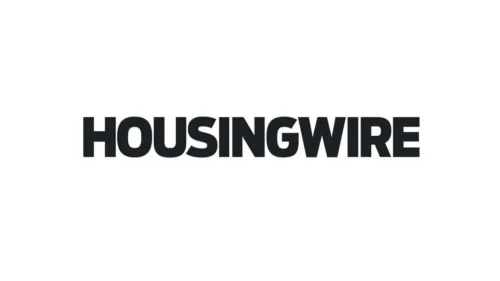Disclaimer: This blog post is for informational purposes only and does not constitute legal advice. Please consult an attorney for guidance on specific laws regarding Remote Online Notarization (RON), digital signatures, and related legal matters. As laws concerning RON and notarization are subject to frequent changes, it is advisable to verify current regulations with your local government.
Remember when buying a car meant spending hours at the dealership, working through stacks of paperwork, and waiting for ink to dry? That traditional process is quickly being replaced. eSignatures for Dealerships are often becoming a key part of the industry’s shift toward digital workflows.
Instead of requiring in-person visits, electronic signatures may allow customers to complete documents remotely, helping to save time and reducing friction. Beyond convenience, eSignatures for Dealerships can support a more efficient customer experience, may improve document security, and often help with regulatory compliance.
As the automotive world continues to modernize, digital tools like eSignatures can play an increasingly important role in streamlining operations.
The Rising Importance of eSignatures in Car Dealerships
Electronic signatures, or eSignatures for short, are rapidly becoming a staple in the automotive industry. This rise can be attributed to an increase in digital retailing and online car buying trends.
A report from Cox Automotive reveals that since the start of the pandemic, 69% of dealers have added at least one digital step into their sales process. Moreover, it was reported that 74% of customers used these new tools to research, fund and purchase vehicles.
This indicates a shift towards a more streamlined customer journey where traditional paper records are being replaced by electronic transactions with eSignatures taking center stage. But why this sudden change?
- eSignature can allow auto finance companies to provide quicker funding approval as there’s often no need for ‘wet ink’ on physical documents.
- eContracting can prove effective not only in helping improve overall customer experience but also in aiding in the prevention of unauthorized access, keeping your data secure throughout vehicle purchases.
To put simply, they speed up motor vehicle sales while ensuring everything remains legally binding under national commerce laws such as E-Sign Act and Uniform Electronic Transactions Act (UETA).
Legal Aspects Surrounding eSignatures
As car buying becomes increasingly digital, the legal framework supporting electronic signatures—commonly referred to as eSignatures—has also evolved. These tools are now widely used in automotive transactions and may offer dealerships a way to streamline paperwork while maintaining compliance with applicable laws.
Federal Laws Regarding eSignatures
At the federal level, the Electronic Signatures in Global and National Commerce Act (E-SIGN Act) provides the foundational legal recognition for eSignatures in the United States. This law affirms that electronic signatures can carry the same legal weight as handwritten ones, provided certain requirements are met—such as consumer consent and accurate record retention.
In parallel, many states have adopted the Uniform Electronic Transactions Act (UETA), which further outlines the use of electronic records and signatures in business and commercial transactions. Together, the E-SIGN Act and UETA form a legal structure that often supports the enforceability of digital contracts, including those used in vehicle sales and financing.
These laws may help reduce legal uncertainty around electronically executed agreements, offering protection for both dealerships and consumers—so long as the necessary conditions are followed.
What About State-Specific Rules? A Look at California
While federal laws set the stage, state adoption and implementation can vary. For example, California has adopted both E-SIGN and UETA, recognizing the legal validity of eSignatures for most transactions, including those related to motor vehicle sales. This means that auto dealers in California may often rely on electronic signature platforms for contracts, title transfers, and related documentation, so long as the process aligns with legal and regulatory guidelines.
Other states have enacted similar laws, but nuances may apply. Dealers operating across state lines should regularly review local statutes and industry guidance to confirm how electronic signatures are treated in specific jurisdictions.
In summary, platforms that support eSignatures operate within a legal framework that is recognized at both the federal and state levels. When implemented properly, eSignatures can often reduce paperwork burdens, support compliance, and help modernize the car-buying experience. However, confirming legal acceptability in each jurisdiction remains an important step.
Streamlining Processes with eSignatures
Purchasing a vehicle has traditionally involved time-consuming paperwork and multiple in-person visits. However, the introduction of eSignatures is reshaping this process. Dealerships are increasingly turning to electronic signature solutions to support faster deal execution, improve operational workflows, and enhance the customer experience.
Allowing customers to sign documents electronically—whether through a web browser, tablet, or mobile device—can reduce the time spent completing paperwork. This added flexibility may lead to shorter transaction cycles and more convenient experiences for both buyers and dealership staff.
According to industry research, nearly 4 in 5 consumers report feeling comfortable using eSignatures for submitting official documents. This growing trust in digital tools reflects broader trends in consumer expectations and online transaction behavior.
The benefits of eSignatures extend beyond speed and convenience. Dealerships often experience:
- Improved document accuracy by reducing missed signatures and incomplete fields
- Enhanced organization, as electronic records replace bulky paper files
- Better security, with digital safeguards that may help prevent unauthorized access to sensitive sales documents
- Greater transparency, thanks to audit trails and real-time status tracking
eSignature platforms also frequently offer features such as guided signature flows, which help ensure all necessary fields are completed before final submission, addressing one of the most common errors in automotive deal processing.
A survey by Cox Automotive found that approximately 72% of car buyers who used eSignatures during their purchase reported being “highly satisfied” with the overall experience. While individual dealership outcomes may vary, these data points to a strong correlation between eSignature adoption and improved customer satisfaction.
As digital retailing continues to grow, eSignatures may play an increasingly important role in helping dealerships modernize their operations, reduce paperwork burdens, and create smoother purchase journeys for today’s tech-savvy buyers.
Security Measures Enhanced by eSignatures
As dealerships continue to digitize their operations, protecting sensitive customer and transaction data becomes a critical priority. eSignatures may offer meaningful security advantages that support this goal, especially when compared to traditional paper-based processes.
Built-in Safeguards Against Fraud
One of the key security features of eSignature systems is the audit trail. Every action—such as document access, edits, and completed signatures, is digitally logged, timestamped, and associated with a user identity. These audit logs can help dealerships:
Many eSignature platforms are designed with features that help reduce the risk of unauthorized access and fraudulent activity. In states that allow electronic signatures for automotive documents, regulations often require the signature to be attributable to a specific individual—meaning the identity of the signer must be verified before the document is executed. This step can make forgery more difficult and provide an additional layer of accountability.
The Role of Audit Trails
- Track the progress of each document
- Identify when and by whom changes were made
- Maintain a detailed record that may support internal reviews or external compliance audits
Audit trails may also be helpful in resolving disputes by providing a clear, time-stamped history of all document interactions.
Protecting Access and Data Integrity
Modern eSignature platforms often include authentication features such as two-factor verification, identity confirmation, and secure user access controls. These tools may reduce the likelihood of unauthorized users viewing or altering sensitive documents, such as sales contracts, financing agreements, or power of attorney forms.
Solutions typically implement encryption and access controls to help ensure that only verified individuals are permitted to sign or access documents.
While no system eliminates risk entirely, eSignatures may help strengthen a dealership’s data security posture by minimizing manual handling, reducing the risk of lost or altered documents, and offering digital safeguards that align with today’s data protection standards. For dealerships seeking to modernize without compromising compliance, these tools often present a practical, security-conscious option.
The Advantage of Designing eSignature Solutions for Dealerships
eSignature platforms may offer basic functionality, but solutions designed specifically for automotive dealerships often align more closely with the operational realities and compliance needs of the vehicle sales process.
Compliance Support
Dealerships operate in a heavily regulated environment, with strict requirements around identity verification, credit disclosures, and data retention. eSignature solutions tailored to auto sales may include built-in features that help meet these standards, such as secure audit trails, user authentication, and guided signature flows. These tools can reduce the risk of missing signatures or non-compliant forms, which are common sources of delay or audit findings.
Faster Funding Cycles
Delays in paperwork processing can slow down funding and impact cash flow. Dealer-focused eSignature platforms often support faster document completion and submission, which may help accelerate lender approvals and funding timelines. By reducing the time between contract signing and deal funding, dealerships may be better positioned to keep inventory moving and maintain steady revenue.
Mobile-First Accessibility
Car buyers increasingly expect to complete transactions on their own terms—often from a mobile device. eSignature platforms built for dealerships typically offer mobile-optimized signing experiences that can accommodate in-store or remote customers. This flexibility may help reduce friction during the signing process and support higher satisfaction, especially among digital-first buyers.
Enhanced Customer Experience
The ability to complete paperwork quickly and securely, whether in the showroom or from home, can significantly improve the buyer’s experience. Dealership-specific eSignature solutions often include guided signing, real-time notifications, and brand customization features that contribute to a more professional, consistent interaction with the customer.
By leveraging eSignature tools designed with dealerships in mind, automotive retailers may streamline their document handling, reduce processing errors, and deliver a more responsive experience—without compromising legal or operational requirements.
Conclusion: The Road Ahead with eSignatures for Dealerships
As the automotive industry continues to evolve, eSignatures for Dealerships are emerging as a practical and effective tool to help streamline operations, improve compliance, and meet the expectations of today’s digital-first buyers. Supported by federal legislation such as the E-SIGN Act and UETA, and recognized in many state jurisdictions, eSignatures can offer an alternative to traditional paper-based processes.
From faster funding cycles and enhanced document security to mobile accessibility and a more seamless customer experience, dealership-focused eSignature platforms may help retailers adapt to modern transaction standards while reducing common operational bottlenecks.
While adoption requires careful consideration of legal and regulatory requirements—especially across state lines—the benefits of a well-implemented eSignature solution can be clear. By embracing eSignatures for Dealerships, auto retailers can be better positioned to navigate today’s digital landscape and drive forward with greater efficiency, accuracy, and customer trust.
Common Questions About eSignatures for Dealerships
How do I get eSignatures?
To obtain eSignatures, you must first choose a reliable digital platform that provides this service. After creating an account, you can upload the document requiring signatures. You then specify where to sign by adding fields in the document and send it to the relevant parties via email. The recipients will receive a link directing them to securely sign the document online. Once all parties have signed digitally, everyone receives a final copy of the executed agreement.
Can you buy a car with an eSignature?
Yes, it is possible to purchase a vehicle using an electronic signature (eSignature). Many auto dealerships and lending institutions have adopted digital processes that include the use of eSignatures. However, specific requirements may vary by state and institution. It’s important to confirm whether your local regulations accept eSignatures for such transactions. Additionally, some documents related to automobile purchasing might still require traditional notarization or in-person signing due to their legal significance.
Are eSignatures legal?
Yes, eSignatures are legal and widely accepted. The U.S. federal law has recognized electronic signatures since the Electronic Signatures in Global and National Commerce Act (ESIGN) was enacted in 2000. Similarly, the Uniform Electronic Transactions Act (UETA) has also made eSignatures legally binding at a state level since 1999. However, certain documents like wills or family law matters may still require traditional wet ink signatures.
Do eSignatures hold up in court?
Yes, electronic signatures (eSignatures) can be legally binding and hold up in court under the U.S. Electronic Signatures in Global and National Commerce Act (ESIGN Act) of 2000. This law ensures that contracts or agreements signed electronically carry the same weight as traditional paper documents with handwritten signatures. However, for an eSignature to be valid, it must meet certain criteria such as intent to sign, consent to do business electronically, association of signature with the record, and record retention.







 Your Privacy Choices
Your Privacy Choices


